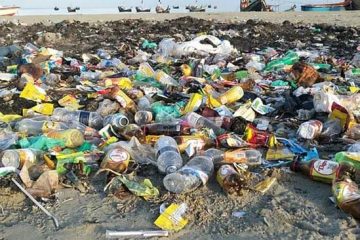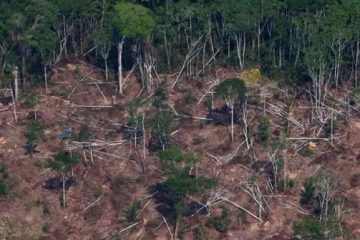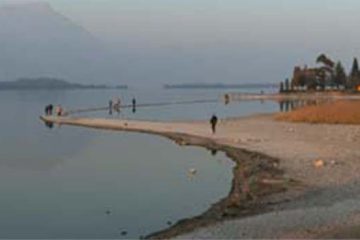From The Times
 Lewis Smith, Environment Reporter
Lewis Smith, Environment Reporter
An endangered species of penguin is mysteriously disappearing from a remote British island in the South Atlantic at a rate of 100 birds every day. About two million northern rockhopper penguins have vanished from Tristan da Cunha and Gough Island, part of the British overseas territory of St Helena, in half a century.
The once huge penguin populations on the islands have dwindled so dramatically that they are now threatened with extinction, and the British Government was accused yesterday of contributing to the decline.
A 90 per cent slump has been observed in both areas but on Tristan it took 130 years whereas it took just 45 years on Gough, where northern rockhopper penguins, Eudyptes moseleyi, have vanished at a rate of 100 a day.
The islands, which lie 230 miles apart, are the penguin’s stronghold, with more than 80 per cent of the world population being found there. The remaining population is on two French-administered islands, St Paul and Amsterdam in the Indian Ocean, and are declining just as rapidly.
Southern rockhopper penguins, Eudyptes chrysocome, which are found on the Falklands and in South America, South Africa, Australia and New Zealand, are also in decline but they are found in greater numbers than their sister species.
Trevor Glass, the conservation officer on Tristan da Cunha, carries out frequent counts of the penguins and has been alarmed at the fall.
“Rockies are one of Tristan’s most charismatic birds and a bird we are used to seeing in good numbers on all the islands,” he said. “These unexplained declines are really worrying and we’ll do everything we can to understand what is going on.”
Climate change and overfishing are among the possible causes but ornithologists are baffled by the fall and are anxious for a research project to be conducted to identify whatever is killing the penguins.
There is concern among environmentalists, however, that the British Government “cannot be bothered” to put any great effort or resources into wildlife conservation on the overseas territories. A meeting is being held today between ministers from the Foreign and Commonwealth Office, the Department for Environment, Food and Rural Affairs, and the Department for International Development to try to reach agreement.
Preparatory meetings held between civil servants to try to reach an accord are thought to have been inconclusive.
“They are completely disinterested,” Sarah Sanders, the Royal Society for the Protection of Birds’ (RSPB) overseas territories officer, said. “It’s ridiculous and embarrassing. We are meant to be world leaders in biodiversity conservation and we can’t even decide who is responsible for the overseas territories.”
She said it appeared that the inertia was partly driven by embarrassment within Whitehall and Westminster that they still had to take responsibility for the remnants of Britain’s Empire.
British overseas territories boast several species of wildlife found nowhere else in the world and are home to 32 species of birds at risk of extinction.
Richard Cuthbert, of the RSPB, was one of the authors of a report published in the journal Bird Conservation International on northern rockhopper penguins, one of four species of penguin listed as endangered.
He concluded: “The declines on Gough since the 1950s are equivalent to losing 100 birds every day for the last 50 years. With more than half the world’s penguins facing varying degrees of extinction, it is imperative that we establish the exact reason why the northern rockhopper penguin is sliding towards oblivion.”
The northern rockhopper population on Gough is estimated at 32,000 to 65,000 pairs. On Tristan it is 40,000 to 50,000 pairs.
Geoff Hilton, a conservation biologist who has studied the rockhopper penguins, added: “Millions of pairs have disappeared. We really don’t understand the causes, but we suspect that a major change is taking place in the marine ecosystem.”
Courtesy: timesonline.co.uk





